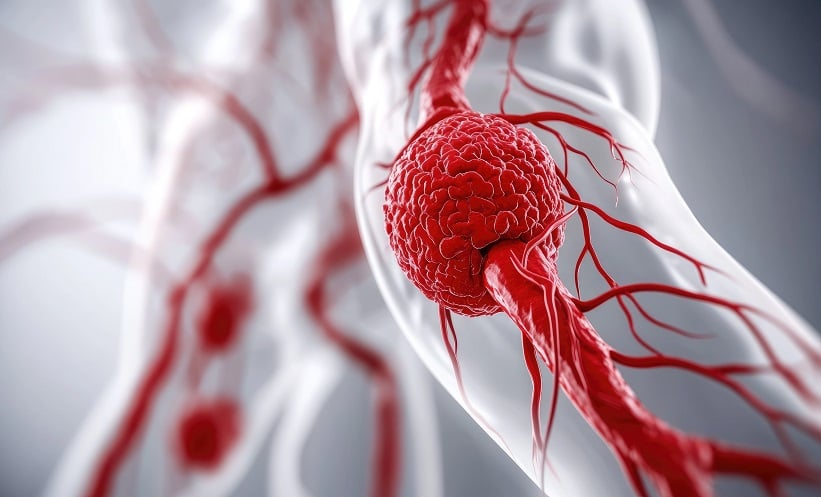A NEW study has shown that extended treatment with a reduced dose of apixaban can effectively prevent recurrent venous thromboembolism (VTE) in cancer patients while reducing the risk of bleeding. This finding could offer an important option for patients with active cancer who are at high risk of blood clots.
The randomised, double-blind trial involved 1,766 patients who had completed at least six months of anticoagulant therapy for proximal deep-vein thrombosis or pulmonary embolism. Participants were randomly assigned to receive either a reduced (2.5 mg) or full (5.0 mg) dose of apixaban for an additional 12 months. The primary goal was to assess the prevention of recurrent VTE, while the key secondary goal focused on clinically relevant bleeding events.
The results revealed that the reduced-dose apixaban group had a lower incidence of clinically relevant bleeding (12.1%) compared to the full-dose group (15.6%), with a statistically significant reduction in bleeding complications (P=0.03). Moreover, the reduced dose was found to be noninferior in preventing recurrent VTE, with a cumulative incidence of 2.1% versus 2.8% in the full-dose group (P=0.001 for noninferiority).
The study suggests that a reduced-dose regimen of apixaban offers a safer and equally effective alternative for preventing blood clots in cancer patients, offering a new treatment option that balances efficacy with safety.
Helena Bradbury, EMJ
Reference
Mahe I et al. Extended reduced-dose apixaban for cancer-associated venous thromboembolism. Thromb Haemost. 2022;122(4):646-56.







